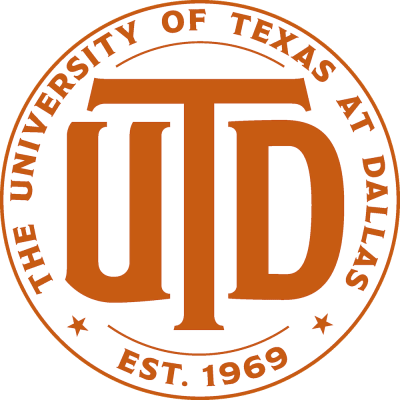
Doctor of Philosophy in Economics
The University of Texas at Dallas

Key Information
Campus location
Richardson, USA
Languages
English
Study format
On-Campus
Duration
4 years
Pace
Full time
Tuition fees
USD 18,276 / per semester
Application deadline
Request info *
Earliest start date
May 2024
* late application deadline: day prior to classes begin
Introduction
The Ph.D. in Economics degree program provides cutting-edge education in economic theories and the development of a rigorous toolkit of mathematical and econometric techniques. Students also gain extensive exposure to various research areas in economics that allow them to think critically about how to approach the analysis of economic problems and contribute to the knowledge base of the discipline. The program is particularly strong in the areas of public economics, applied microeconomics, macroeconomics, data analysis, and the economics of conflict.
Mission
The mission of the Ph.D. in Economics is to train students in both economic theory, econometric techniques, and data analysis. Students should gain expertise in at least two fields within economics and gain the skills necessary to produce original research in these areas. The goal is for students to think critically on how to analyze economic problems and to contribute to the knowledge base of the discipline.
Admissions
Curriculum
Degree Requirements
Students not making satisfactory progress towards degree requirements may be subject to loss of funding, academic probation, and/or dismissal from the Economics Program.
Students seeking a Ph.D. in Economics must complete 75 graduate semester credit hours. In addition, students must (i) complete core courses with an average GPA of at least 3.0 where grades for each course are 'C' or better; (ii) pass comprehensive exams in micro- and macroeconomic theory and econometrics (although the econometrics exam will be waived for students who complete required econometrics courses with an average grade of A- or better); (iii) write an acceptable research paper and present the paper to the Economics Program by the end of the seventh semester of study, (iv) be certified in two research areas (i.e., fields) within the science of Economics; (v) schedule and successfully defend their dissertation proposal and (vi) defend their dissertation, submitting an approved dissertation. The following elaborates on these requirements.
Students are required to complete the following core courses:
- ECON 6301 Microeconomics Theory I
- ECON 7301 Microeconomics Theory II
- ECON 6302 Macroeconomics Theory I
- ECON 7302 Macroeconomics Theory II
- ECON 6305 Mathematical Economics
- ECON 6309 Econometrics I
- ECON 7309 Econometrics II
During their first semester, students will also be required to take a course in statistics, with the specific course determined by the Director of Graduate Studies. Students must have at least a 3.00 average in ECON 6301, ECON 6302, ECON 6305, ECON 6309, ECON 7301, and ECON 7302 (with no grades below 'C') to be eligible to take the macroeconomics and microeconomics qualifying exams. Students must maintain at least a 3.00 average in all core courses (with no grades below 'C') to be eligible for the econometrics qualifying exam and to proceed toward the dissertation stage.
In order to assure that the student progresses satisfactorily, each student is required to consult with their advisor prior to registration each semester. Initially, the Director of Graduate Studies (DGS) of the Economics Program will serve as the advisor for students. Prior to the end of year three in the program, students should find a dissertation chair, who will then serve as the student's academic advisor.
For research area certification, the student must select two research areas and advise the DGS of the selection. The DGS will, in conjunction with the Economics Curriculum Committee, advise the student of the appropriate certification requirements. The general guidelines for certification consist of an average of B+ or better in two courses within each area. No more than one of these courses may be a directed study. Directed studies may not be substituted for existing courses within an area. Examples of field areas include, but are not limited to: labor economics, public economics, economics of education, econometrics, applied microeconomics, applied econometrics, macroeconomics, game theory, industrial organization, and urban and regional economics. Research areas must be declared and completed no later than at the end of the third year of study.
By the end of a Ph.D. student's seventh semester in the program, including semesters spent pursuing a master's degree in economics at UT Dallas, the student must present a seminar or 'brown-bag' hosted by the Economics Program at UT Dallas on original research, usually conducted under the supervision of the student's advisor. Subsequent to the presentation, the student's advisor will determine whether the research is sufficiently developed to recommend continued funding. The brown-bag requirement is waived for students successfully defending their dissertation proposal prior to the completion of their seventh semester.
By the end of their eighth semester, students should have completed their dissertation proposal. Students must receive a passing grade on the proposal from the members of their dissertation committee. In addition to the brown-bag seminar and proposal, students preparing for the job market are expected to present a job-talk seminar during the corresponding fall semester. The job-talk seminar requirement may be waived at the dissertation advisor's discretion.
The submission of an approved dissertation will complete the course of study for the Ph.D. degree in Economics. The procedure for approval of the dissertation is outlined in the UT Dallas Graduate Catalog.
Career Opportunities
Graduates of the program seek positions such as academic, data analyst, an economist in financial institutions, management firms, and consulting firms both in the private and domestic sector, academics and researcher and government positions (the Federal Reserve banks, Bureau of Labor Statistics, Census Bureau, Social Security Administration, and Federal Trade Commission).
Facilities
English Language Requirements
Certify your English proficiency with the Duolingo English Test! The DET is a convenient, fast, and affordable online English test accepted by over 4,000 universities (like this one) around the world.